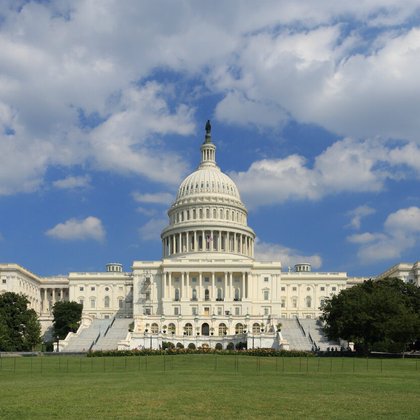Why ProEnglish OPPOSES H.R. 2499
No Puerto Rico statehood without English
The Puerto Rico Democracy Act of 2009, H.R. 2499, introduced by Rep. Pedro Pierluisi (D-PR) requires Puerto Ricans to hold a national referendum to indicate whether they want Puerto Rico to remain a self-governing U.S. commonwealth, or become the 51st state.
1) ProEnglish OPPOSES H.R. 2499 for the following reason:
- H.R. 2499 does not specify that Puerto Rico has to make English the default language of government operations as a condition for statehood. Puerto Rico currently has two official languages, English and Spanish. But Puerto Rico’s government conducts its day-to-day operations solely in Spanish.
2) Unless Puerto Rico adopts English, admitting it as a state would:
- Set a bad precedent. No territory with an official language other than English has everbeen admitted to the Union.
- Endanger our nation’s unity. The U.S. has avoided the kind of bitter political and cultural strife that afflicts linguistically divided countries today such as Canada, Belgium, and theUkraine because we have preserved English as our unifying national language.
- Undermine the vital role English plays in the assimilation process. Learning English has always been essential to the successful assimilation of new immigrants. Admitting a predominantly Spanish-speaking state whose government operates in Spanish sends the wrong message about the need to learn English and maintain our melting pot tradition at a time when the U.S. is already struggling to assimilate a large and rapidly growing Spanish-speaking immigrant population.
- Increase demands for taxpayer-funded translation and interpreter services. The U.S.already spends between $1-2 billion a year to provide documents and interpreters in foreign languages, according to a 2002 OMB report to Congress. Admitting Spanish-speaking Puerto Rico as a state will lead to increased demands for taxpayer funded Spanish language translations and interpreters and similar demands from other language groups.
3) There IS precedent for requiring English as the language of government as a condition for statehood.
- In 1811, James Madison signed the Louisiana Enabling Act admitting Louisiana as the 18th U.S. state. Due to the large population of Creole and French speakers living inLouisiana at the time, the Act required Louisiana to adopt English as the language of its government as a condition of statehood.
4) NO existing U.S. state government operates in a language other than English on a day-to-day basis. Puerto Rico would be a glaring exception.
- Hawaii is the only U.S. state with two official languages, English and Hawaiian. ButHawaii’s official language makes English the default language of government operations. New Mexico’s state legislature has recognized the value of foreign languages learning, but does NOT have two official languages. Thirty U.S. states, a majority, have passed laws recognizing English as the official language. The U.S. Senate voted in June, 2007 to recognize English as the national language of the U.S.
5) ProEnglish believes that to be admitted as a state Puerto Rico MUST:
- Adopt English as the official language of day-to-day government operations including all laws, official records, and government proceedings and agree to make English as a second language instruction mandatory in its public schools. These stipulations must be added to H.R. 2499 so Puerto Rican voters can make an informed choice before voting in a referendum on their country’s future status. This would not be imposing English onPuerto Rico. It simply means that if Puerto Rico chooses to become a U.S. state, it would do so in the full knowledge that it will be required to adopt English as the language of its government as a condition for statehood.
Puerto Ricans have fought bravely defending freedom as members of the U.S. Armed Forces, and made great contributions as citizens residing in the U.S. But the U.S. has a duty to preserve English as the unifying language of our nation. Puerto Rico should not be admitted to the Unionunless it agrees to make English the official language of day-to-day government operations, and English language instruction mandatory in its public schools.



